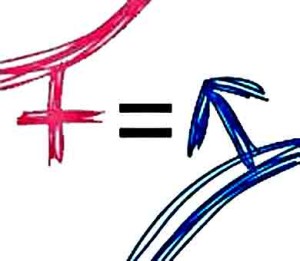Oral statement at CEDAW 55th session
The fifty-fifth session of the United Nations Committee on the Elimination of Discrimination against Women (CEDAW), took place 9 Jul- 23 Jul 2013 in Geneva, Switzerland, where also Afghanistan’s combined first and second reports were examined. International Federation for Human Rights (FIDH) and Armanshahr Foundation / OPEN Asia made a joint oral statement the session.
The session considered reports from the following seven State parties: Afghanistan, Bosnia & Herzegovina, Cape Verde, Cuba, Democratic Republic of the Congo, Dominican Republic, Serbia, and United Kingdom.
Adopted by the United Nations General Assembly on December 18, 1979, CEDAW is an international human rights treaty that focuses on women’s rights and women’s issues worldwide. Consisting of a preamble and 30 articles, it defines what constitutes discrimination against women and sets up an agenda for national action to end such discrimination. CEDAW is not only an international bill of rights for women but also an agenda of action. Countries that ratify CEDAW agree to take concrete steps to improve the status of women and end discrimination and violence against women.
FIDH/Armanshahr joint oral statement at the review of the combined initial and second reports submitted by Afghanistan – CEDAW 55th session
Since 2001, progress has undoubtedly been achieved in the field of women’s rights in Afghanistan. This includes, the establishment of a Ministry of Women’s Affairs (albeit without executive power), the participation of women in political institutions, and accession to CEDAW. Nevertheless, discrimination remains entrenched in law and practice, violence against women continues to be perpetrated on a massive scale, with almost complete impunity and there are worrying signs of setbacks.
Although incidents of violence remain largely unreported and reliable statistics are therefore unavailable, the latest UNAMA/OHCHR report notes further increases in the perpetration of harmful practices and violence against women. The Afghanistan Independent Human Rights Commission (AIHRC) recorded 4,010 reported cases of violence against women from 21 March to 21 October 2012 throughout Afghanistan, compared to 2,299 cases the previous year.
Meanwhile, the number of women and girls in detention on the grounds of “loose morals” is the highest since the ouster of the Taliban. Most of those detained are victims of abuse and have committed no crime under Afghan law.
Victims face major obstacles in accessing justice. In December 2012, a UNAMA report entitled Still a Long Way to Go: Implementation of the Law on Elimination of Violence against Women in Afghanistan highlighted that the Afghan National Police and the prosecutors’ offices continue to resort to jirgas and shuras for advice or resolution of cases, including serious crimes. Resort to parallel legal bodies undermines the implementation of the Law on Elimination of Violence against Women.
Conservative groups have blocked reforms aimed at increasing protection. In May, attempts by several parliamentarians to strengthen the Law on Elimination of Violence against Women, adopted by presidential decree in 2009, were blocked by conservative lawmakers. They opposed articles criminalizing child marriage and forced marriage, banning the traditional “BAAD” practice of exchanging girls and women to settle disputes between families, making domestic violence punishable up to three years in prison, protecting rape victims from prosecution for adultery or fornication, limiting the number of wives a man can have to two, and establishing shelters for battered women, considering them as violating Islamic law.
Women’s participation in political and decision-making processes is also under threat. The electoral law is being revised and is currently under examination by the Senate to omit passages setting aside 25 percent of seats on provincial and district councils for women and/or reducing the quota to 15%. Incidents of violence against women remain obstacles to women’s participation in public life. There are frequent acts of aggression against women human rights defenders promoting gender equality and women’s rights. Prominent women rights defenders have been directly threatened and obliged to leave the country. Among the many attacks reported in 2012, Ms. Najia Seddiqi, Acting head of the Women’s Affairs Department was the victim of a targeted killing in Laghman province.
In this context, the government of Afghanistan should:
- Prevent women’s rights being put on the bargaining table in negotiations with the Taliban and other stakeholders in the peace process.
- Ensure the effective implementation of the Law on the Elimination of Violence Against Women, including the investigation and prosecution of perpetrators of violence against women, in accordance with national laws and international obligations.
- Strengthen the “formal” justice system, including by ensuring the effective participation of women in the judiciary.
- Repeal or revise discriminatory laws against women, including the Shiite Personal Law, the Law on Marriage and discriminatory provisions of the Criminal Code and Property law.


